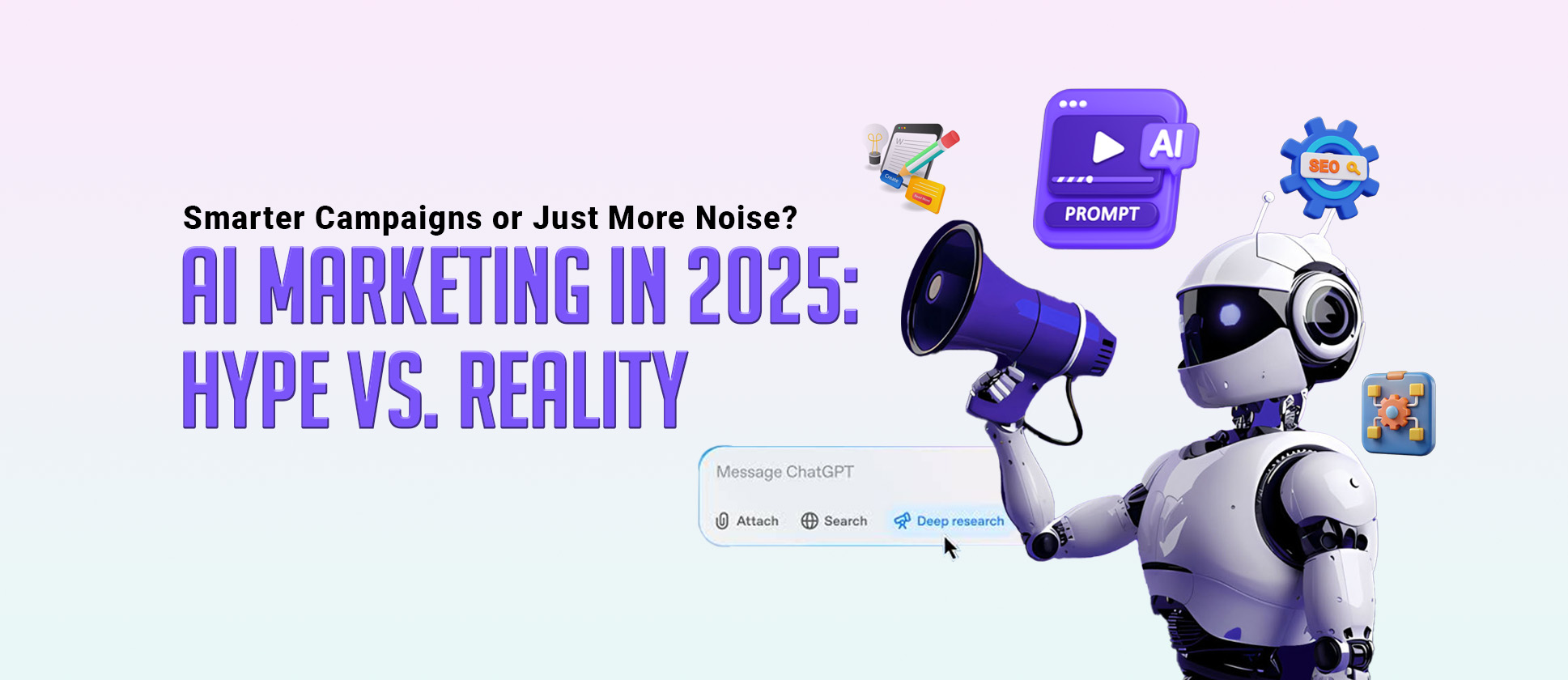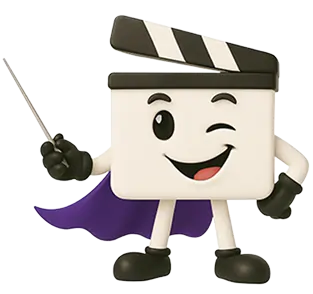Quick Summary
TL;DR: AI is reshaping marketing by speeding up content creation, sharpening targeting, and giving brands faster insights. It makes campaigns smarter, not noisier, when used with intention. The challenge is balancing automation with originality so audiences don’t feel overwhelmed or disconnected. #tldr
- Core Factors:
AI Speed → Personalization → Smarter Targeting → Better Creative → Stronger Results
- Key Insights:
AI boosts speed, but human creativity keeps campaigns meaningful → Brands that combine AI tools with thoughtful storytelling stand out in crowded feeds → Personalization works best when guided by real stories, not templates → Multi-platform search and AI-driven workflows are now mandatory, not optional
- Final Takeaway:
Use AI to amplify your team’s reach and efficiency, but keep humans in charge of voice, strategy, and storytelling – that’s the combo that turns faster output into real business results.
AI in marketing is not some distant, futuristic dream; it is already here and changing the way campaigns get built, tested, and scaled. Marketers are no longer waiting days or weeks to figure out if a Marketing Campaign works. With AI-powered marketing tools, performance insight, audience targeting, and creative testing can all happen instantly. That speed is exciting, but also raises the question: are these campaigns genuinely smarter, or are brands simply adding more noise into feeds already bursting at the seams with content? Because around 34.1% of Marketers Report significant improvements in marketing outcomes due to AI, but 17.5% report some setbacks.
The flip side is that marketers now risk relying too heavily on marketing automation with AI. If everything feels machine-made, where do personality and originality fit in? This is not just a tool shift; it is a balance test. At ShortVids, we’ve seen firsthand how machine learning in digital marketing is not just about saving time. It is about helping teams build smarter connections with real people who are tired of the generic. When done right, personalized approaches make campaigns more engaging and feel less like background clutter.
Importance of AI in Marketing
Capturing attention today is a tough challenge for marketers because audiences scroll fast and tune out anything that feels repetitive or overly salesy. Meanwhile, AI-driven customer engagement helps brands react instantly to behaviors, making campaigns feel personal rather than robotic. That is why AI in marketing is becoming essential. Tools that deliver AI content creation and predictive targeting let brands create campaigns that cut through the noise with relevant messages tailored to each viewer’s interests. Using AI-based advertising campaigns smartly means working faster and smarter while keeping a real connection alive.
How AI Is Powering Marketing Right Now
From Content Creation to Marketing Analytics to customer experiences, today’s AI-powered marketing tools are shaping workflows in ways that speed execution and sharpen brand messaging. AI in marketing is already a daily tool across campaigns, big and small. It is no longer about distant predictions but about how real marketers are building smarter systems today. Below are the areas where AI is currently transforming marketing work.
Generative AI
Generative AI is moving beyond text and jumping into avatars and voice using tools like HeyGen and Eleven Labs. This gives marketers fresh ways to humanize branded content, making AI-based advertising campaigns flexible for social media.
The growth is clear: the AI Avatar Market was valued at $7.4 billion in 2024 and is projected to hit $118 billion by 2034. Even HeyGen itself grew more than 1,000% year-over-year, showing how fast brands are adopting avatar-based storytelling. Let’s read some actionable ways marketers can use Generative AI:
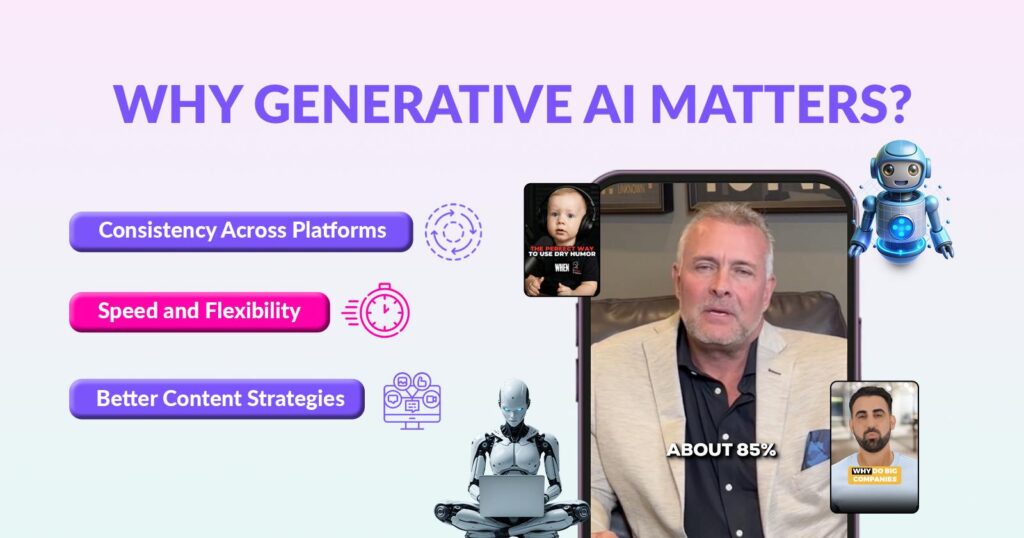
- Create AI avatars using HeyGen or Eleven Labs as virtual brand ambassadors to deliver personalized messages that resonate on social platforms like Instagram and TikTok.
- Produce voiceovers for ads or explainer videos without hiring voice talent, accelerating video production timelines.
- Integrate avatar-driven storytelling in live events or webinars to boost audience engagement and brand recall.
Super Agents
AI “super agents” are fully autonomous tools, such as Manis, which can create multiple blog ideas in half an hour. In a Salesforce study, over 70% said they’re using Generative AI for creative idea generation, proving that inspiration is no longer limited by human pace. They speed decision-making and prove how machine learning in Digital Marketing optimizes workflow with little human input.
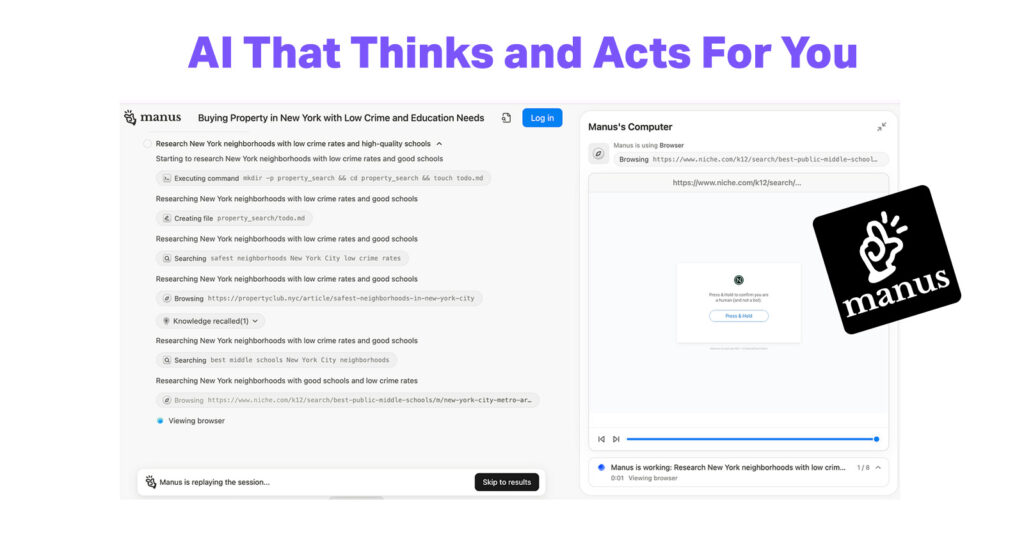
- Use Manis to rapidly identify high-intent keywords and generate multiple content ideas, cutting blog ideation time from days to minutes.
- Automate the early content strategy phase, allowing marketers to focus on refining messages and distribution instead of brainstorming topics.
- Leverage AI agents to test keyword relevance and prioritize topics based on predicted traffic and conversion potential.
Creative Space
Entry barriers for creativity are disappearing since tools like ChatGPT can generate YouTube thumbnails and Ad creatives. In fact, around 69% of marketers already use AI for image creation, while 62% use it for generating new visuals. That makes creative tasks easy for brand builders, showing personalized marketing with AI in a very accessible way. For small teams, that means professional-level creative without the heavy costs. Let’s take your focus on some actionable ways marketers can leverage:
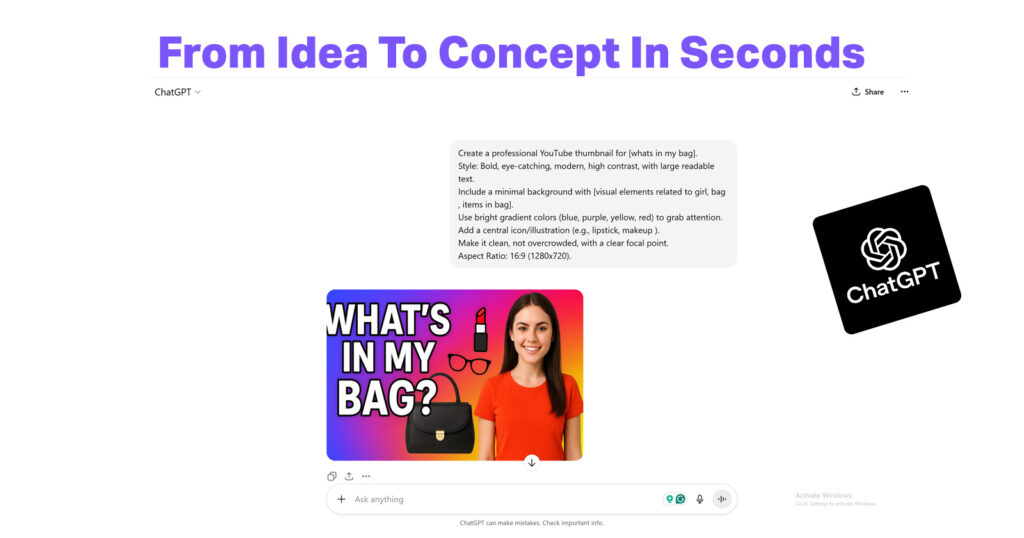
- Deploy ChatGPT to craft YouTube thumbnails and ad concept drafts tailored to target demographics, streamlining creative review cycles.
- Enable small teams to produce professional-quality visuals by using AI image generators, reducing dependency on external agencies.
- Quickly generate multiple ad variations to A/B test creative elements without the overhead of manual design iterations.
Code Generation
This allows new brands to lean on marketing automation with AI, integrating features with zero technical hurdles or steep setups. With code generation tools like Cursor and Replit, non-coders can design digital products fast. Adoption is huge; GitHub Copilot alone has 1.8 million active users, and developers using AI coding assistants report a 55% productivity boost. In practice, that means a new brand can go from idea to working prototype faster than ever before.
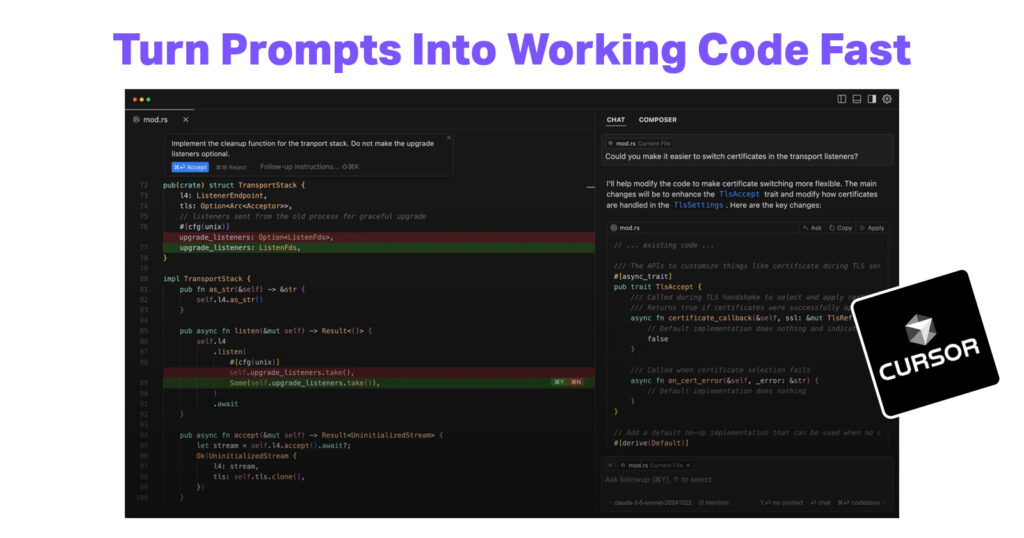
- Build custom landing pages and micro-apps with AI coding assistants like Cursor and Replit, skipping lengthy development sprints.
- Integrate personalized user experiences through AI-generated scripts that adjust offers based on real-time user data.
- Accelerate marketing tech stack expansion by generating and modifying automation scripts without traditional programming bottlenecks.
Search Everywhere Optimization
Organic reach no longer relies on Google alone; platforms like Amazon, YouTube, or Spotify matter as well. Marketers are already adapting, with around 68% expecting AI-powered search to increase website traffic, while more than 42% of companies are using generative AI in marketing and sales globally.
The search battleground is no longer one platform; it’s everywhere your audience looks. This shift pushes AI in marketing closer to multi-platform dominance through broad “search everywhere optimization.” Here’s how marketers can use the Search Everywhere optimization feature:
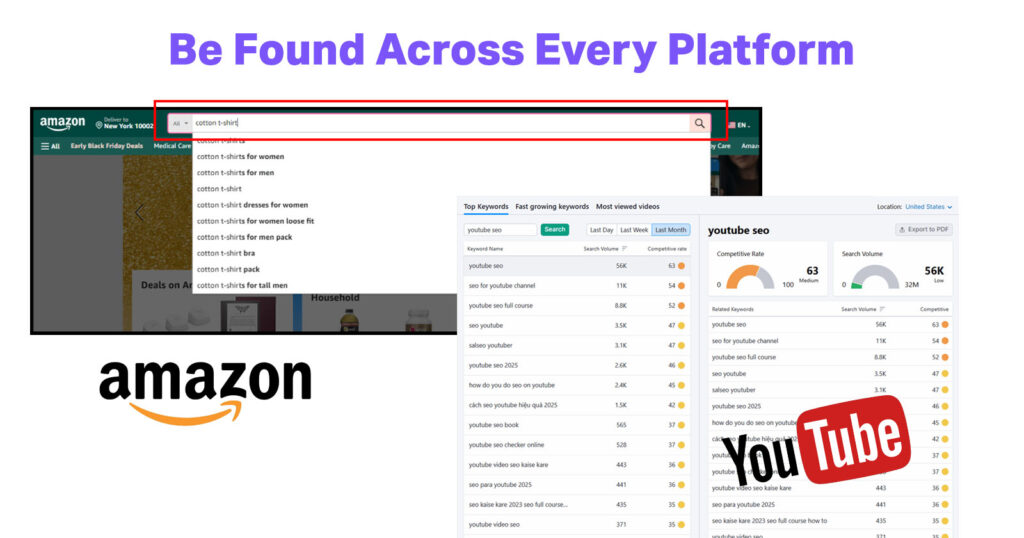
- Optimize product listings on Amazon using AI tools to tailor keywords and descriptions for higher search ranking and conversion.
- Adapt video SEO for YouTube by analyzing AI-generated keyword trends and incorporating them into the video title, description, and tags.
- Target voice search queries on platforms like Google Assistant and Alexa by creating conversational, AI-optimized content that matches natural language patterns.
Ad Creation
From ChatGPT to Sora, automated ad-making tools like Carrot deliver ad templates that worked before and build on them fast. This fuels AI-powered marketing tools by cutting down the time spent on producing strong advertising. We’re already seeing proof: Meta has announced plans to fully automate ad creation by 2026, handling text, images, and video without human setup. This will simplify Meta Ads creation even more. And startups like Headway have shown the upside: their AI-made video ads boosted ROI by 40% while slashing production time. AI for Ad creation can be used in many ways, such as:
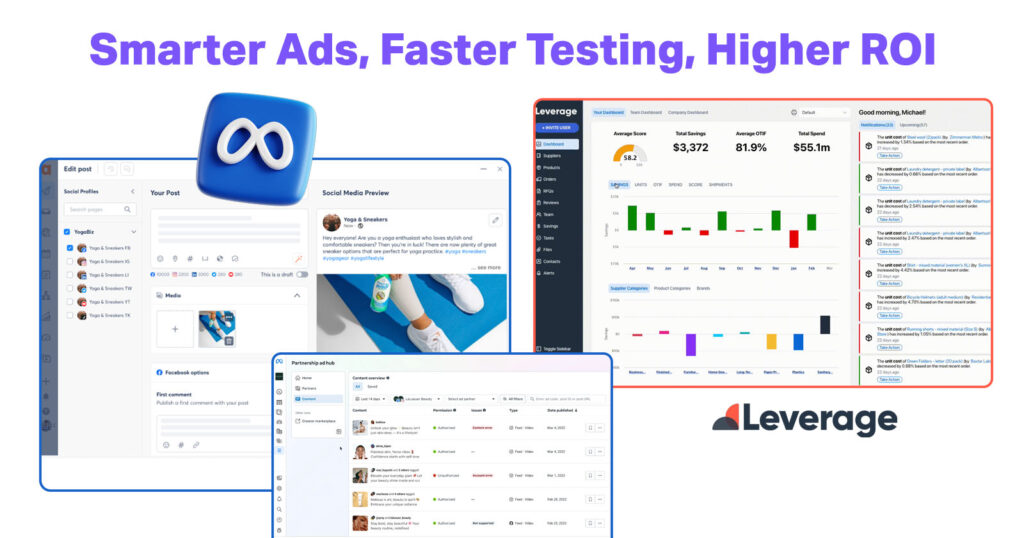
- Use automated tools like Carrot to analyze top-performing ad templates.
- Leverage AI platforms such as Headway to produce video ads that boost ROI.
- Prepare for the upcoming automation on platforms like Meta by setting up ad assets.
Deep Research
According to a SurveyMonkey study, 93% of marketers say AI helps them generate content faster, while 81% say it helps them uncover insights more quickly. That reflects how these tools are being used for deep research and strategic planning. AI-driven platforms like Gemini, Perplexity, and ChatGPT carry out “deep research” quickly. They give insights into industries or strategies that used to take weeks, enhancing AI-driven customer engagement research effectiveness. know how marketers and Businesses use AI for deep research:
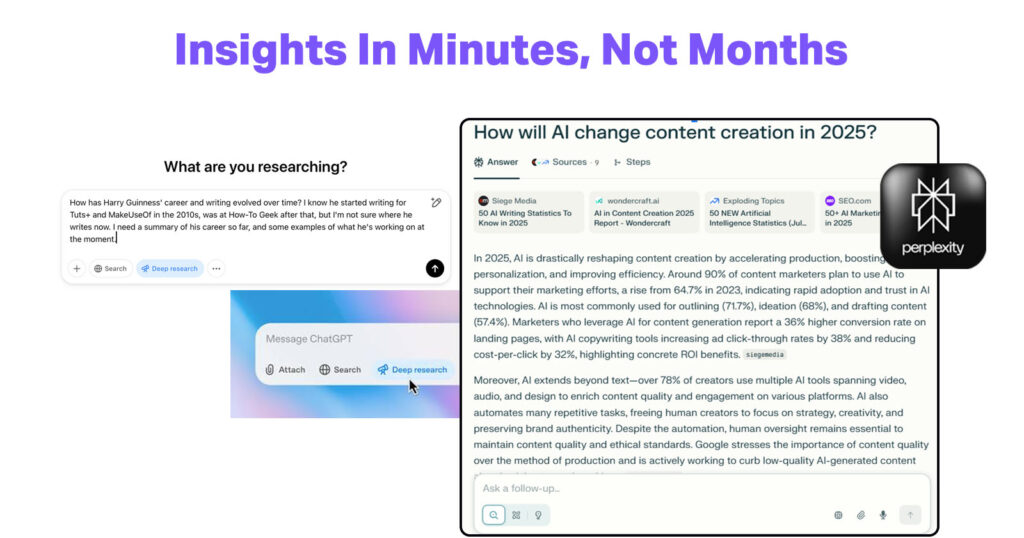
- Employ AI tools like Gemini and Perplexity to perform competitive analysis and market trend mapping in minutes instead of weeks.
- Use AI-generated insights to tailor content strategies, identifying gaps and high-impact topics that drive engagement and conversions.
- Accelerate customer persona development by quickly synthesizing large volumes of data from surveys, social listening, and behavior metrics with AI.
Agentic Workflows
AI-based advertising campaigns are far more flexible compared to older static marketing designs. Instead of rigid funnels, campaigns now use adaptive “agentic workflows” powered by AI agents that can make small decisions instantly. Meta’s roadmap to full AI automation of ads points to more agentic workflows: allowing small adjustments, creatives, and targeting to be varied in real time rather than locked down before launch.
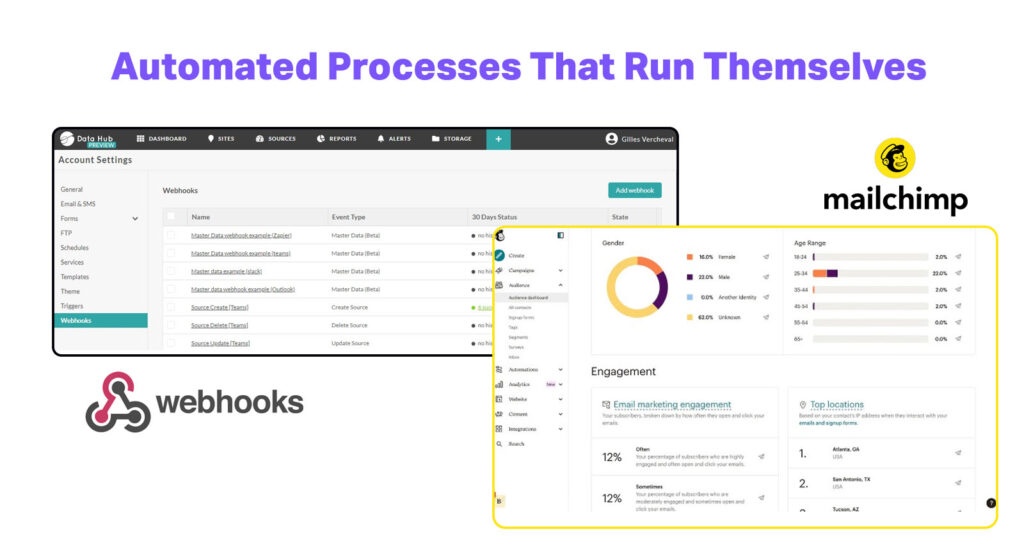
- Design marketing campaigns with flexible AI-driven decision points that adjust creatives, targeting, and bidding in real time based on live data.
- Implement AI agents that test multiple messaging angles simultaneously and switch focus dynamically toward top performers.
- Reduce dependency on rigid funnel stages by creating adaptive workflows, allowing marketing automation with AI to react instantly to changing consumer behavior.
Voice and Video Search
Voice search continues growing alongside video optimization. Globally, around 20–21% of people use voice search as of 2025. Repurposing Tools like Overlap helps marketers reuse video moments as new ads, fueling smarter AI content creation and personalizing what audiences later see. Confused about how AI can help you with voice and video search? Read below:
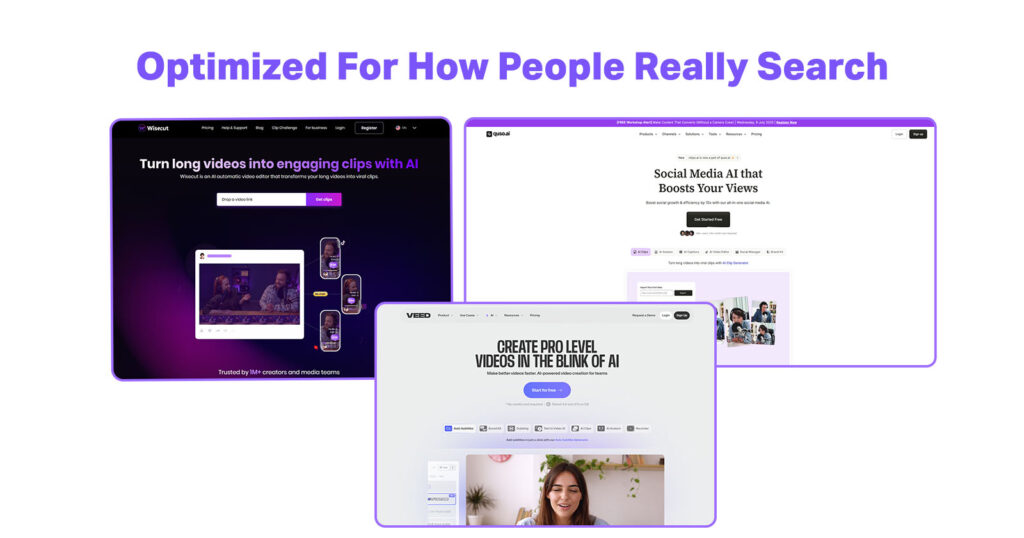
- Optimize video content metadata and transcripts using AI tools to enhance discoverability on voice and video platforms like YouTube and Alexa.
- Tailor SEO strategies by targeting conversational keywords common in voice queries, allowing brands to capture emerging traffic streams.
- Repurpose longer video content into smaller, shareable clips automatically, using tools like Overlap to maximize audience reach and engagement.
Learn More: How To Repurpose Longer Videos Into Short Viral Pieces Of Content.
Marketing Attribution
About two-thirds of marketers report they use AI for marketing attribution, often to predict customer behavior, path journeys, and understand what touchpoints contribute to conversions. Data attribution is sharper now as humans oversee teams of AI agents that manage several campaigns. This collaboration quickly improves personalized marketing with AI while optimizing which channels truly drive revenue. AI can help you with marketing attribution in many ways, such as:
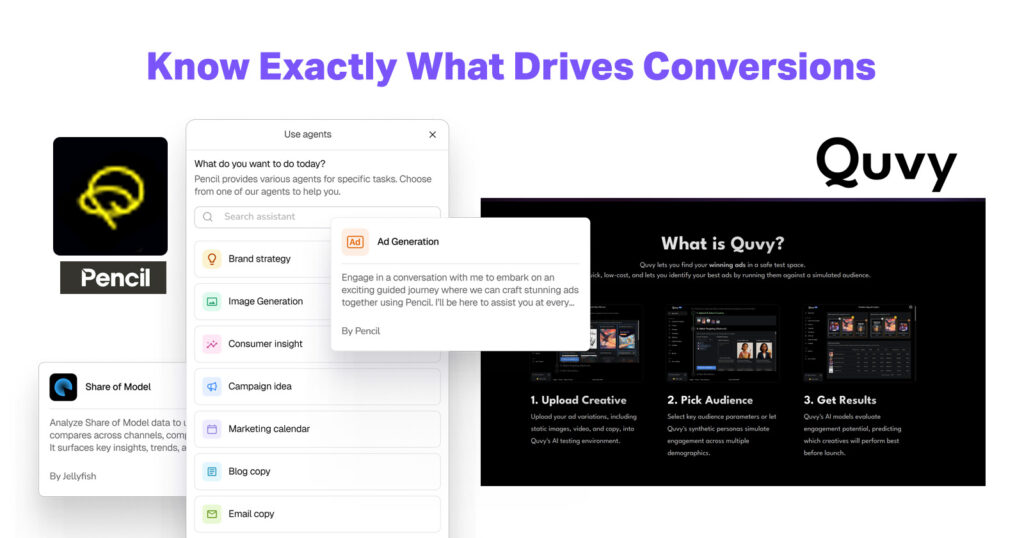
- Use AI-powered attribution models to analyze multi-touch customer journeys.
- Combine human oversight with AI agents for continuous refinements.
- Predict future purchase behaviour by integrating AI-driven data insights.
AI and Personalization
Artificial intelligence in marketing thrives more when you personalize it, and that is what keeps audiences hooked instead of annoyed. From ad relevance to real-time product suggestions, AI-driven customer engagement makes people feel understood. By mixing predictive targeting with AI-powered marketing tools, campaigns feel tailored instead of generic.
- Leverage AI-driven customer engagement tools to offer personalized product recommendations at the right moment in the buyer’s journey.
- Combine predictive targeting models with AI marketing tools to segment audiences precisely and tailor campaign content for maximum impact.
- Monitor engagement data continuously and let AI adjust personalization layers dynamically to keep campaigns fresh and relevant.
- Use AI insights to develop nuanced customer profiles that inform future content creation and marketing strategies for a deeper connection.
Predictive Targeting
Predictive AI models are now hitting 80-95% accuracy in marketing use cases, helping brands forecast customer behavior way more precisely than old-school methods. It uses machine learning in digital marketing to foresee audience actions before they happen. This gives brands the upper hand for launching precise campaigns people actually enjoy engaging with.
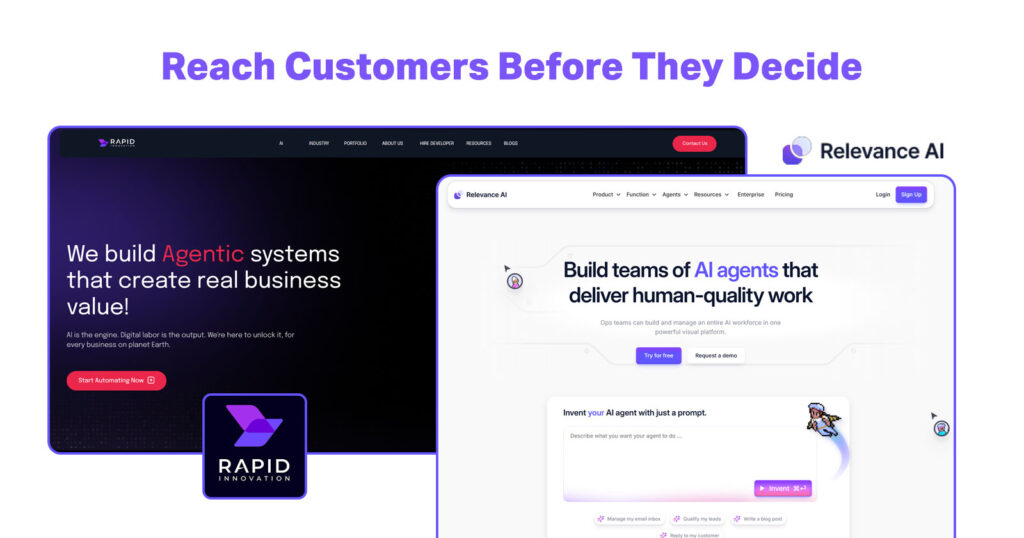
- Apply AI models to analyze past customer behavior and predict which segments are most likely to convert, enabling hyper-targeted ad spend.
- Use predictive insights to time campaigns perfectly, for example, sending offers right before anticipated purchase windows.
- Optimize budget allocation by focusing on the highest-propensity audiences, reducing wasted impressions, and boosting ROI.
AI Content Creation
62% of marketers use AI tools for content creation, and brands using AI for video content say they see 40-50% higher engagement vs traditional videos. AI content creation goes well beyond blogs. From infographics to dynamic social video edits, these systems turn brand stories fun and relatable. This aligns with AI-based advertising campaigns for multiple digital channels.
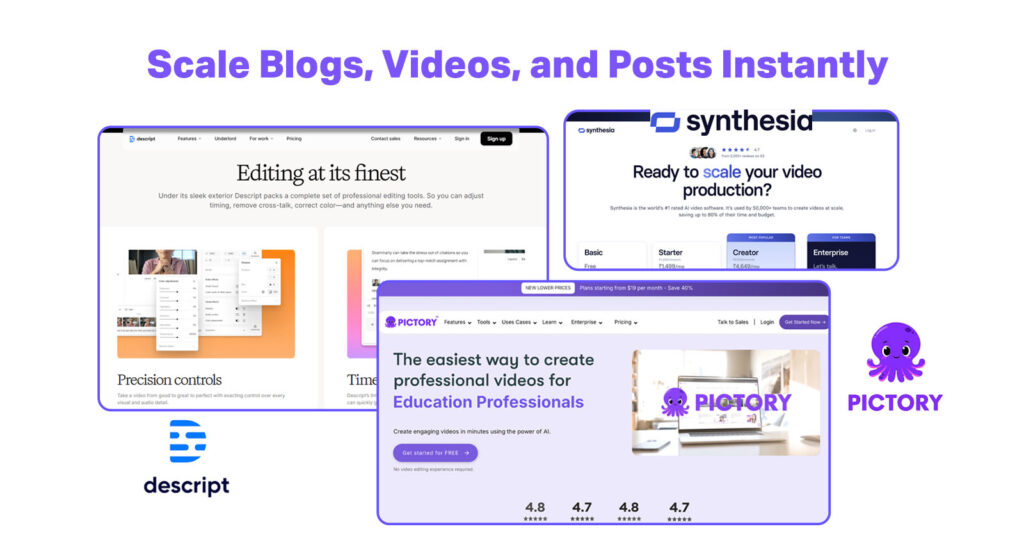
- Leverage AI tools to produce varied content types quickly.
- Increase video engagement by using AI-generated scripts and visuals.
- Automate routine content tasks while maintaining quality storytelling.
Real-Time Optimization
With real-time optimization, marketers can adjust campaigns instantly. AI-powered tools allow marketers to cut content creation time by 30-50% on average. That means real-time tweaks & shifts become possible. Also, AI in Social Media enables hyper-local personalization, which helps improve relevance by 70%. This improves marketing automation with AI because teams no longer waste time and budget on strategies that do not get results. You can use AI to:
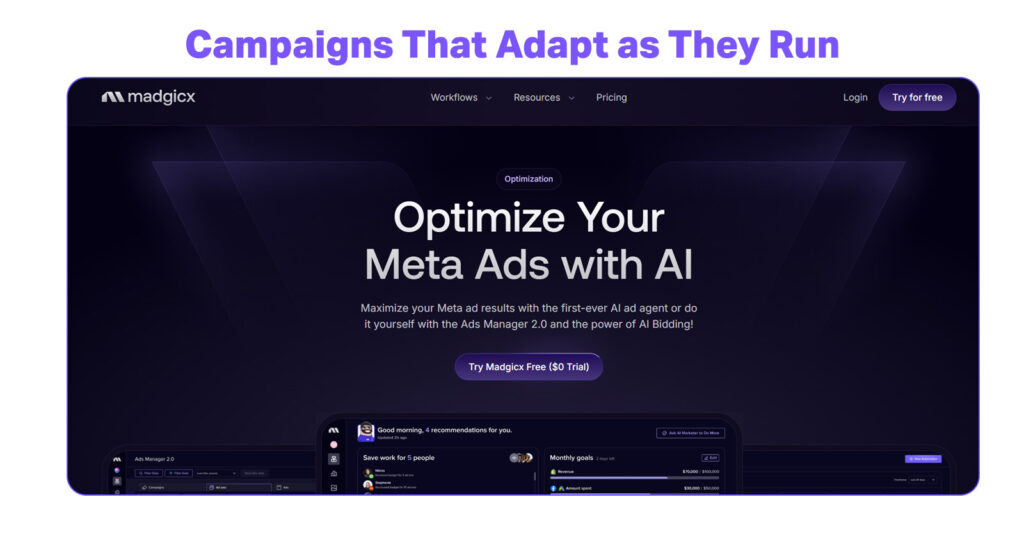
- Monitor campaign performance with AI dashboards and instantly adjust creatives, targeting, or bidding without manual delays.
- Use AI-driven hyper-local personalization to tailor social media ads to specific neighborhoods or micro-markets for higher relevance.
- Reduce marketing waste by pausing or shifting budget away from underperforming segments in real-time, increasing overall campaign efficiency.
AI Chatbots
Chatbots are not just for customer support anymore. They are adoption drivers shaping AI-driven customer engagement, giving users quick answers in tone-friendly formats while guiding them to purchase stages. In e-commerce, chatbots have helped brands quadruple conversion rates (e.g., jump from ~3% to ~12.3%) in some cases.
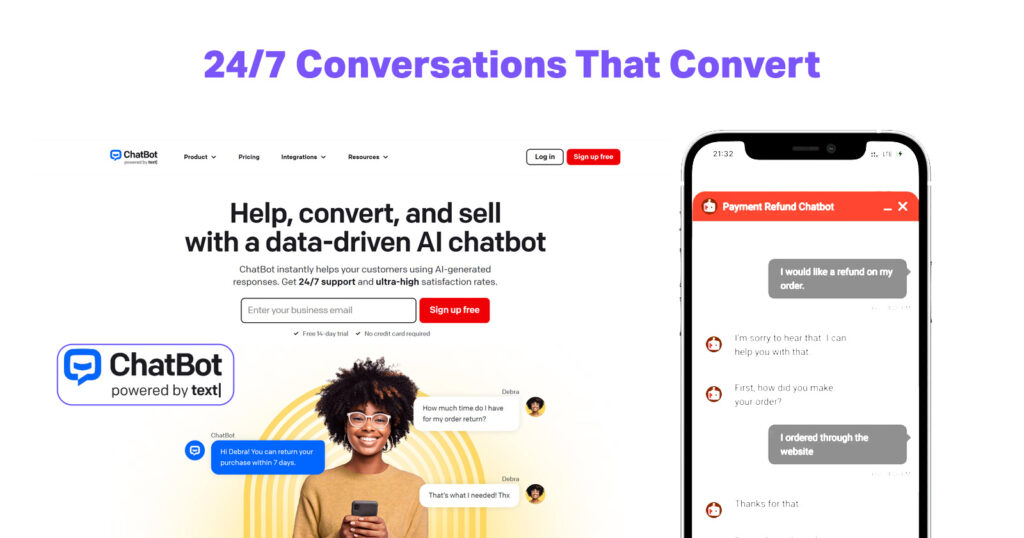
- Deploy chatbots with a natural, conversational tone to answer customer questions immediately, reducing friction in the purchase process.
- Use them to qualify leads by guiding users through product options based on preferences and past behavior.
- Employ chatbots in post-purchase follow-up to improve retention and encourage repeat buying, contributing to higher lifetime customer value.
Table: AI Marketing Strategies And Impact
This table highlights the key benefits of AI marketing strategies, showing how it changes campaign efficiency, personalization, and scalability. It outlines how AI amplifies human creativity by automating routine tasks and delivering data-driven insights that drive smarter marketing decisions.
| Strategy | Key Benefits |
|---|---|
| Generative AI | Human-like voices and avatars for engagement |
| Super Agents | Rapid keyword and content ideation |
| Creative Space | Quick thumbnails and ad visuals |
| Code Generation | Easy development without deep coding knowledge |
| Search Everywhere Optimization | Boost reach across Google, YouTube, Spotify, and Amazon |
| Ad Creation | Ad templates tested for proven success |
| Deep Research | Full market reports in minutes |
| Agentic Workflows | Campaigns that adapt with context |
| Voice & Video Search | Repurposing content across multiple formats |
| Marketing Attribution | Clearer visibility of ROI |
| Predictive Targeting | Forecast audience actions for better conversions |
| AI Content Creation | Scalable blogs, posts, and ad copy in seconds |
| Real-Time Optimization | Instant campaign tweaks for higher performance |
| AI Chatbots | Automated conversations with human-like responses |
Balancing Creativity and Scale Amid Content Overload
Audiences scroll through feeds bursting with visuals, stories, and noise amplified by new AI-powered marketing tools. With the rise of AI in marketing, content overload has become a serious Challenge in Content Creation that brands must face. This saturation makes it harder than ever for individual voices to stand out.
According to a 2025 report, over 80% of marketers are already using AI to produce content faster, but almost 45% admit they lack a scalable model to maintain quality while meeting demand. This shows that endlessly scaling content with marketing automation with AI does not guarantee success. Brands must focus on creativity and meaningful messaging, not just more content piled onto screens.
The Future Of AI In Marketing
The future of AI in marketing is about blending smart AI tools with human creativity, not full automation. Look at YouTube’s new 2025 AI Content Demonetization ban: it restricts repetitive, mass-produced AI videos without original human input. This signals a major caution: while AI can power efficiency and scale, overreliance on generic AI-generated content risks penalties and audience disengagement.
Marketers must balance marketing automation with AI alongside authentic storytelling and creativity. Brands like ShortVids thrive by combining fast AI-driven insights with rich human narratives, creating AI-based advertising campaigns that stand out in an overcrowded digital scene.
Importance Of Human Touch
No matter how smart AI becomes, the human touch remains irreplaceable. A genuine laugh or a relatable moment in a video can cut through the fatigue caused by AI-driven customer engagement overload. As AI accelerates production, audiences crave authenticity more than ever.
Personalized marketing with AI works best when it pairs algorithmic precision with real human warmth and connection. That’s why ShortVids focuses on meaningful video editing that highlights real emotions and stories, boosting loyalty rather than just chasing Marketing Metrics.
How ShortVids Drives Results with AI and Human Creativity
At ShortVids, we believe smart AI in marketing tools is best when paired with genuine human insight and storytelling. This combination helps brands cut production time without sacrificing emotional impact, something traditional automation struggles to deliver. Our video editing and Content Creation Services use AI-powered technology to create highly personalized social videos that resonate deeply with target audiences.
How We Helped Michael Makabi
Take Michael Makabi, for example, a real estate entrepreneur and author of My Real Estate Bible. We produce AI-generated Video Content made specifically for his real estate business, highlighting his expertise and relatable insight. These videos serve double duty: promoting his services and building a strong Personal Brand that connects authentically with his audience on social platforms.
Michael’s results show how ShortVids helps clients leverage AI content creation responsibly, maintaining creativity and trust while boosting marketing impact. Whether building personal brands or running scalable marketing campaigns, ShortVids makes AI-powered creativity work for real-world results that matter.
Final Thoughts
Campaigns are faster, more creative, and built with precise AI-based advertising campaigns that meet actual needs. AI is certainly reshaping how campaigns get built, optimized, and tracked. If used without thought, AI in marketing risks adding clutter instead of clarity. Yet when marketers apply tools for personalized marketing with AI, adjust using machine learning in digital marketing, and maintain unique stories, the results are unmatched. ShortVids sees this shift not as more noise but as smarter opportunities to connect deeply in ways humans still value.
Frequently Asked Questions
AI powers ad targeting, personalized recommendations, and automated content creation. For example, brands use AI to craft social videos, optimize email timing, and boost campaign ROI with data-driven insights.
AI in marketing automates repetitive work, but people are still needed for strategy, creativity, and genuine connection. It’s about working smarter, not about being replaced.
AI handles campaign setup, segmentation, and analysis, but marketers guide creative, set goals, and refine messaging. Full automation misses real-world context; human oversight is essential.
ShortVids combines AI video automation with expert editors for standout social and ad content. We help brands like Michael Makabi’s real estate business use AI for growth, without losing the human touch.
Book a Call Today
- Fixed monthly plans starting at $999
- 24-hour turnaround time (or less) on all short-form edits
- 3-layer quality check system on every video
- No more chasing freelancers or managing editors
- Scale up to 50+ videos/month without hiring in-house
- Content team trained on platform trends, scroll-stopping hooks & storytelling
- Fully managed by professionals – you just upload & approve
- Response time: Under 1 hour (US & GCC time zones)
Cut your production costs, not your standards.

